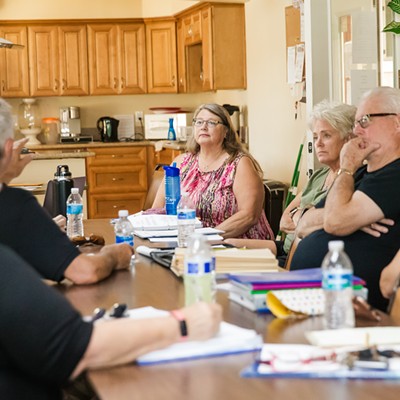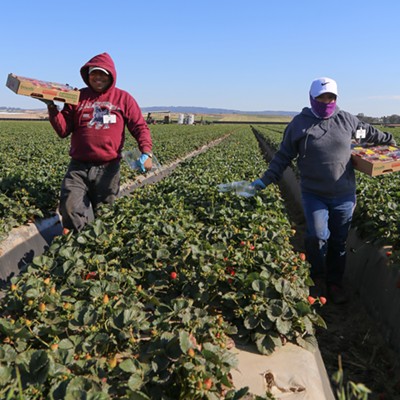Three rounds of presentations, 41 public comments, and an hour of deliberation led to inaction from the Santa Barbara County Board of Supervisors on a proposal to install safety valves on the pipeline that caused the 2015 Refugio oil spill.
With only four supervisors on the dais, the board voted 2-2 twice on the issue during their Aug. 22 meeting, with 4th District Supervisor Bob Nelson and 5th District Supervisor Steve Lavagnino supporting Pacific Pipeline Oil Company’s proposal to install 16 safety valves and 1st and 2nd District Supervisors Das Williams and Laura Capps voting to deny the project.
Third District Supervisor Joan Hartmann recused herself from the discussion because the pipeline runs through the northeast boundary of her property. Without a majority vote, the board wasn’t able to take any action.
“It’s similar to a denial, but it doesn’t carry that prejudice,” Williams said at the end of the hearing. “The applicant could reapply in a year. … Normally a denial would prohibit applying for a year, but the lack of action wouldn’t prohibit that.”
The proposal came from the pipeline’s previous owner, Plains Pipeline L.P., and county planning staff approved the project in August 2022, giving Plains the go-ahead to install 16 new safety valves on pipelines 901 and 903. This project would help it comply with a state mandate (AB 864) that requires oil operators to use the best available technology to prevent spills, a piece of legislation that Williams authored as an Assembly member.
However, the Gaviota Coast Conservancy, the Tautrim Family, and Grey Fox LLC appealed county staff’s decision in September with concerns about a pipeline restart. The Santa Barbara County Planning Commission voted to uphold the appeal and deny the project during its April 26 meeting, citing health and safety concerns, Gaviota Coast viewshed obstruction, and outdated permits.
Pacific Pipeline Company—a subsidiary of ExxonMobil that received approval for the pipelines’ ownership transfer in June—appealed the commission’s decision, and county staff recommended the Board of Supervisors grant the appeal and approve the project.
Normally, county staff doesn’t sway away from the Planning Commission’s decision, but it does happen on occasion, Planning and Development Director Lisa Plowman told the supervisors.
“We do that when we believe that the recommendation that was originally made is consistent with the law and provisions of our code and any requirements,” Plowman said. “In this case based, really grounded, in the state law is where we came from in deciding to make that determination.”
If the county doesn’t allow Pacific Pipeline Company to install the valves, it would have to propose an alternative in order to still be in compliance with the state law. While Supervisor Capps argued that installing valves would signal restart, the applicants argued and staff agreed that this project is to focus solely on valve installation.
“I respect that we are asked to talk about valves, but it defies logic for me that you would need safety valves [while it’s not operating],” Capps said. “With due respect, it’s not improper for me to look at the big picture, it’s actually my job to look at the big picture. I was elected to look at the big picture and the big picture is climate change.”
Supervisor Lavagnino said he didn’t want to risk another legal battle with ExxonMobil or see the company submit an alternative application and risk another oil spill without safety valves—creating not just an environmental disaster but a public relations disaster.
“I look at this as what we’re supposed to be discussing today and I appreciate you looking at the big picture, but the reality is sometimes our jobs are to work inside of a legal framework,” Lavagnino said. “That makes it very difficult for us to make the decisions that our emotions want us to.”












